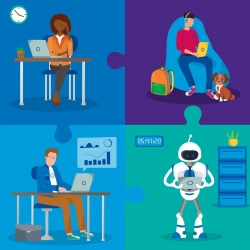To provide the best experiences, we use technologies like cookies to store and/or access device information. Consenting to these technologies will allow us to process data such as browsing behaviour or unique IDs on this site. Not consenting or withdrawing consent, may adversely affect certain features and functions.
The technical storage or access is strictly necessary for the legitimate purpose of enabling the use of a specific service explicitly requested by the subscriber or user, or for the sole purpose of carrying out the transmission of a communication over an electronic communications network.
The technical storage or access is necessary for the legitimate purpose of storing preferences that are not requested by the subscriber or user.
The technical storage or access that is used exclusively for statistical purposes.
The technical storage or access that is used exclusively for anonymous statistical purposes. Without a subpoena, voluntary compliance on the part of your Internet Service Provider, or additional records from a third party, information stored or retrieved for this purpose alone cannot usually be used to identify you.
The technical storage or access is required to create user profiles to send advertising, or to track the user on a website or across several websites for similar marketing purposes.
 The UK Government’s Work and Pensions Committee has called for more employment support to address economic inactivity. The support for helping people into work should be widened to those not on benefits, with a new scheme developed to encourage people to set up their own businesses and move into self-employment. The Committee has also called for more focus to be given to measures to help young people, the over 50s and people with disabilities and long-term health conditions find and stay in work. More →
The UK Government’s Work and Pensions Committee has called for more employment support to address economic inactivity. The support for helping people into work should be widened to those not on benefits, with a new scheme developed to encourage people to set up their own businesses and move into self-employment. The Committee has also called for more focus to be given to measures to help young people, the over 50s and people with disabilities and long-term health conditions find and stay in work. More →


































July 12, 2023
Generations in the workplace: setting the record straight
by Jo Sutherland • Comment, Workplace